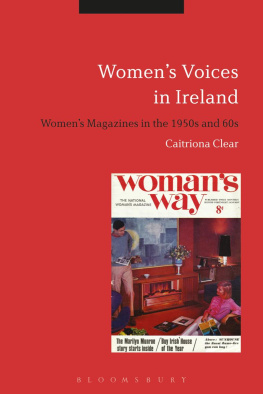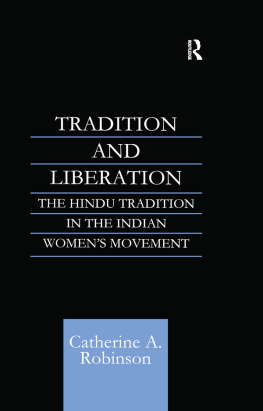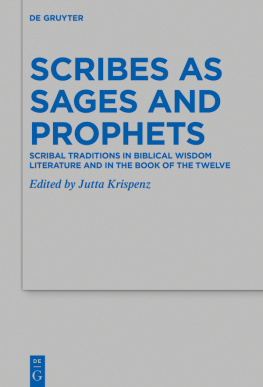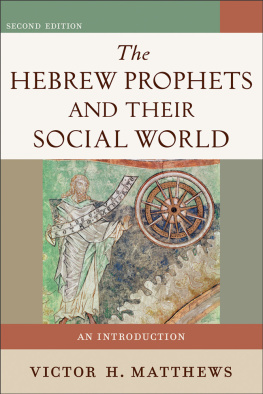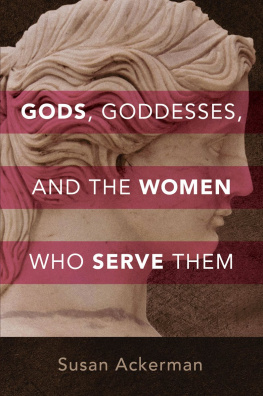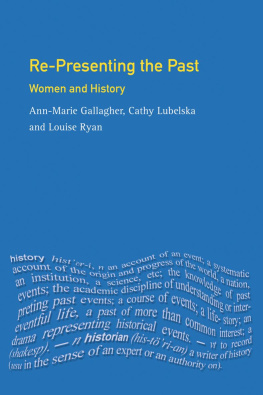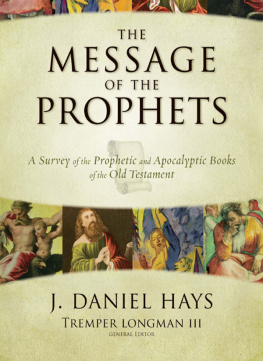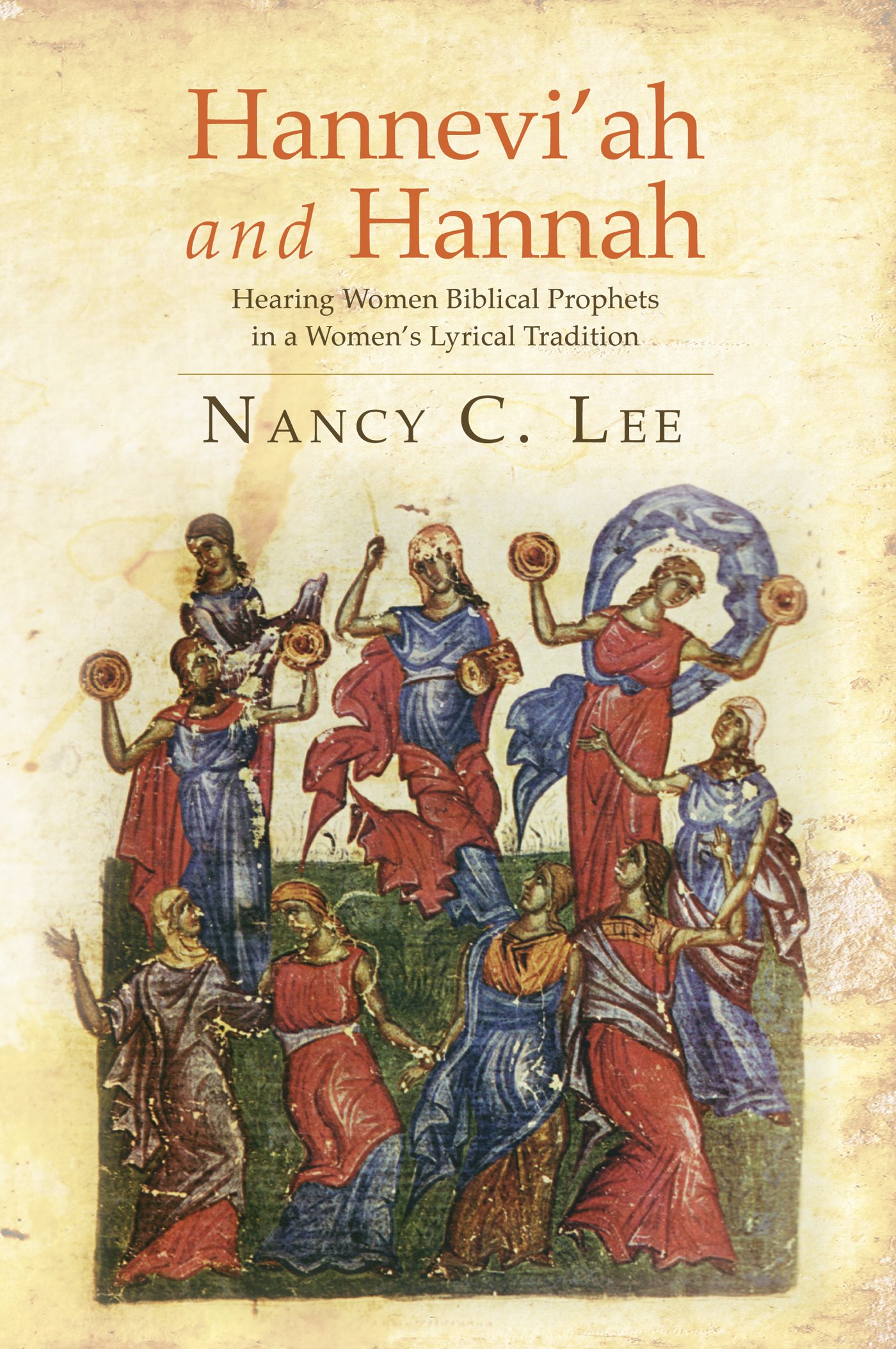Quotations marked (NRSV) come from the New Revised Standard Version Bible, copyright 1989 , Division of Christian Education of the National Council of the Churches of Christ in the United States of America. Used by permission. All rights reserved.
Brief quotations marked as (NJPS) come from Tanakh: The New JPS Translation according to the Traditional Hebrew Text . Copyright 1985, 1999 by The Jewish Publication Society with the permission of the publisher.
and live on in more than memory.
B. Elmo Scoggin
Mishael M. Caspi
Preface
I t is important to share something of my own social, cultural, and religious location from the outset. Reared, educated, and residing in U.S. culture, and a womanthough living, learning, and moving about regularly in other cultures still shaped by indigenous traditionsmeans I am shaped by what this entails. As a student of the Hebrew Bible, I have learned most from Jewish scholars and from Christian scholars who have immersed themselves as much as possible in the ancient Hebraic culture(s) and language. Both of these traditions have greatly influenced me as a Christian. Yet, I have a profound respect and appreciation for those who constructively practice the worlds indigenous spiritual traditions and world religions, and I also stand with them. I believe we all, including those adhering ultimately to philosophical principles, have something important to contribute to understanding what it means to being fully human, responsible, just, and compassionate in relation to one another, to our kindred spirits in nature, and to the transcendent realm beyond us, that the spiritually inclined call God or Creator or many other names in traditional languages. On the other hand, every culture with its religious or spiritual tradition has its faults and failings which must be critically engaged and criticized.
Besides using oral-poetic, indigenous/postcolonial feminist approaches, this study surely benefits from all the methods and scholarship that has come before, and insights from poststructuralist, new-historical, and postmodern approaches. However, neither the intent nor procedure here, I trust, is to create a methodological system in order to explain everything in or about the biblical texts. This study proposes a new way to rediscover something important about the old ways of Hebraic oral poetic traditional composing, but does not claim to be comprehensive. Moreover, not only do the texts precede theory in this study (if not all presuppositions!), neither is the text all there is in this approach. Biblical lyrics from Hebraic culture and contexts came indeed from real indigenous people with real voices and perspectives, put into writing at some stage. This return to the local and the contextual, as well as a respect for the sophistication of the artistry of indigenous women and men from ancient oral-traditional cultures is central here. And of course the hearer (expanding the reader of texts) is importantas are, one hopes, the oral performers for new contexts. My aim as an investigator is not to stand apart from these traditions but to immerse myself as utterly as possible in them, even though I am still an outsider historically and culturally. Apart from some of the dangerous ideologies occasionally appearing in ancient Hebraic culture (e.g., holy war, misogyny, exclusivism, which have been also practiced by other cultures), it is my firm conviction that retrieving a fuller understanding of the whole Hebraic oral tradition, especially the lyrical, will illuminate much that is desperately needed in our world today.
Nancy C. Lee, PhD
Elmhurst College, Chicago
June 2014
Acknowledgments
I wish to express my appreciation first to Elmhurst College for the sabbatical that supported my research for this book, and to my colleagues there, especially women whose leadership and friendship is a constant inspiration. I am grateful to Cascade Books, my editor, K.C. Hanson, Calvin Jaffarian, and numerous other W&S staff for their careful help with a complex manuscript. My profound debt and heartfelt appreciation goes to my professor of Hebrew, the late B. Elmo Scoggin; his inspiration lives on. And for the late Mishael M. Caspi, whose support of me early and later in my career with regard to going against the grain in pursuit of oral tradition and common ground across cultures and religions, I will always be grateful. So too I am grateful to the late John Miles Foley for his affirmation along the way. I want to especially thank dear friends and colleagues in whose communities I have been immersed and graciously welcomed over the years, learning of the power of their cultural traditionsin Croatia, Bosnia-Herzegovina, the Cherokee community, and South Africa.
Important women scholars and teachers, too numerous to mention, have blazed a trail upon which we all make our way. Looking back over the years, I am humbled to realize how many individuals, by their own academic work, word of encouragement, suggestion, or collaboration, have been of support to me along the way. For such for this book, I especially thank Athalya Brenner, Carol Meyers, Mayer Gruber, Walter Brueggemann, Irmtraud Fischer, Steven Bob, Naomi Graetz, Rachel Havrelock, Tim Beal, Julie Claassens, Hendrik Bosman, Jin Han, Marianne Blickenstaff, Chris Franke, Maggie ODell, Melody Knowles, Susan Hylen, Laurel Taylor, Shawna Dolansky, Alice Keefe, and Kathy Maxwell. I also thank the Feminist Hermeneutics, and Women in the Biblical World groups at SBL, and the Performance Criticism, Formation of Isaiah, and Lament in Sacred Texts and Cultures groups. I am especially grateful for collaborations with Christl Maier, Nuria Calduch-Benages, and women colleagues working on the Bible and Women: An Encyclopaedia of Exegesis and Cultural History.


